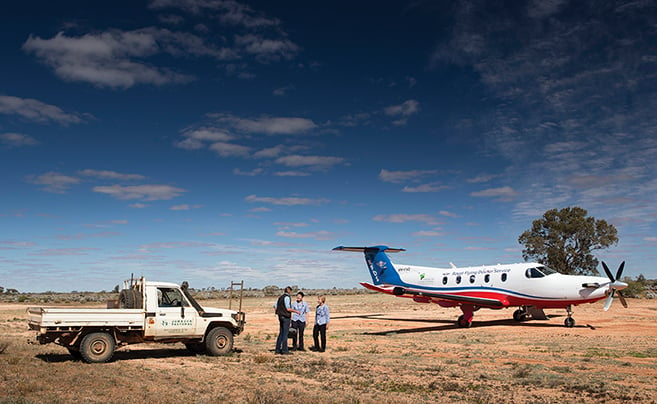A lack of available primary health services means that people living in very remote areas barely receive half of the GP services available through Medicare compared to people living in metropolitan areas. The Royal Flying Doctor Service (RFDS) has been working to fill this gap for 87 years.
The not-for-profit aeromedical organisation was founded by the Reverend John Flynn on the notion of providing a ‘mantle of safety’ for people living, working, and travelling in rural and remote Australia. John, through his work in the Australian Inland Mission, saw a need for an aerial medical service.
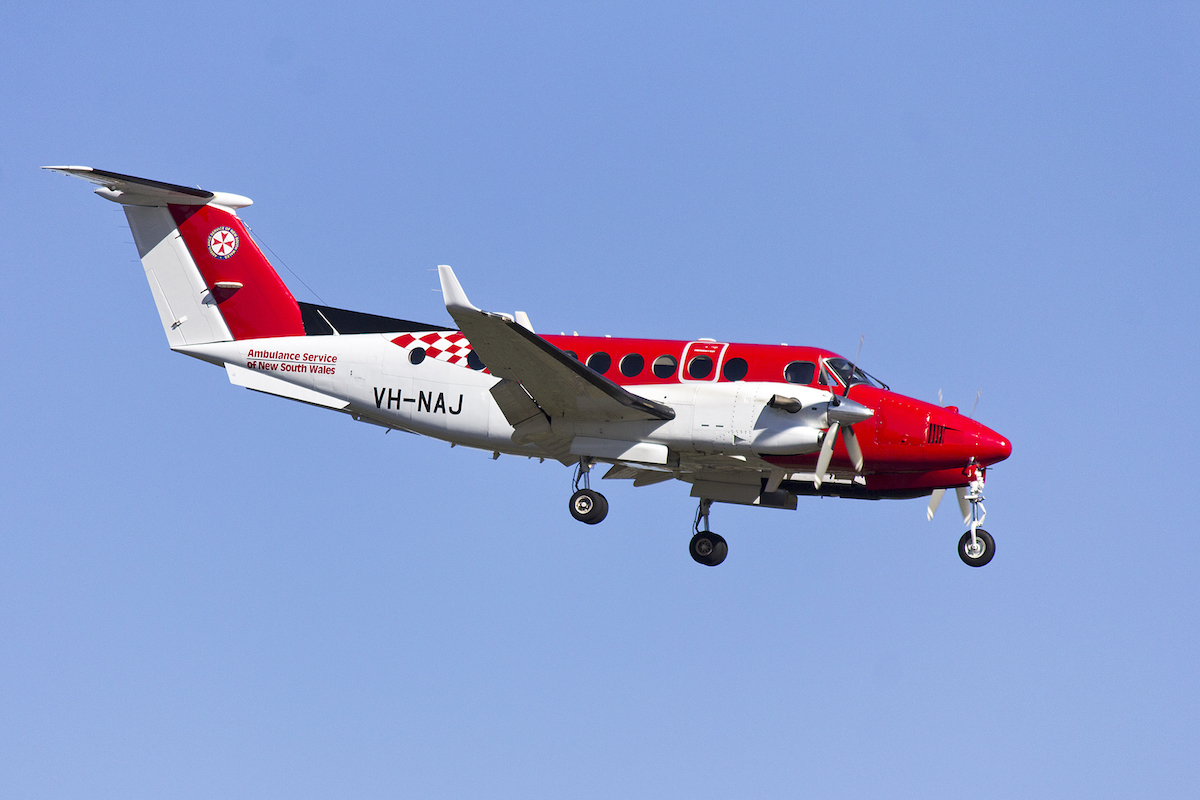
From its birth on 15 May 1928, the fledgling service assisted 255 people and saved four lives in its first year of operation. The RFDS is now recognised as the world’s largest, and most comprehensive, pre-eminent aeromedical organisation.
Essential primary care for remote & rural areas
While well known for its emergency primary evacuation services provided 24 hours a day, seven days a week, the RFDS also delivers a broad range of primary health services, and in more recent years preventative health programs aimed at encouraging healthy lifestyles in remote communities.
There is evidence that the need for these services in rural and remote Australia is greater than ever.
The Canberra-based Centre for International Economics report The Royal Flying Doctor Service:
Flexible and responsive primary healthcare for rural and remote Australia , commissioned by the RFDS and released on 26 March 2015, identifies serious gaps in the provision of primary healthcare for rural and remote Australia.
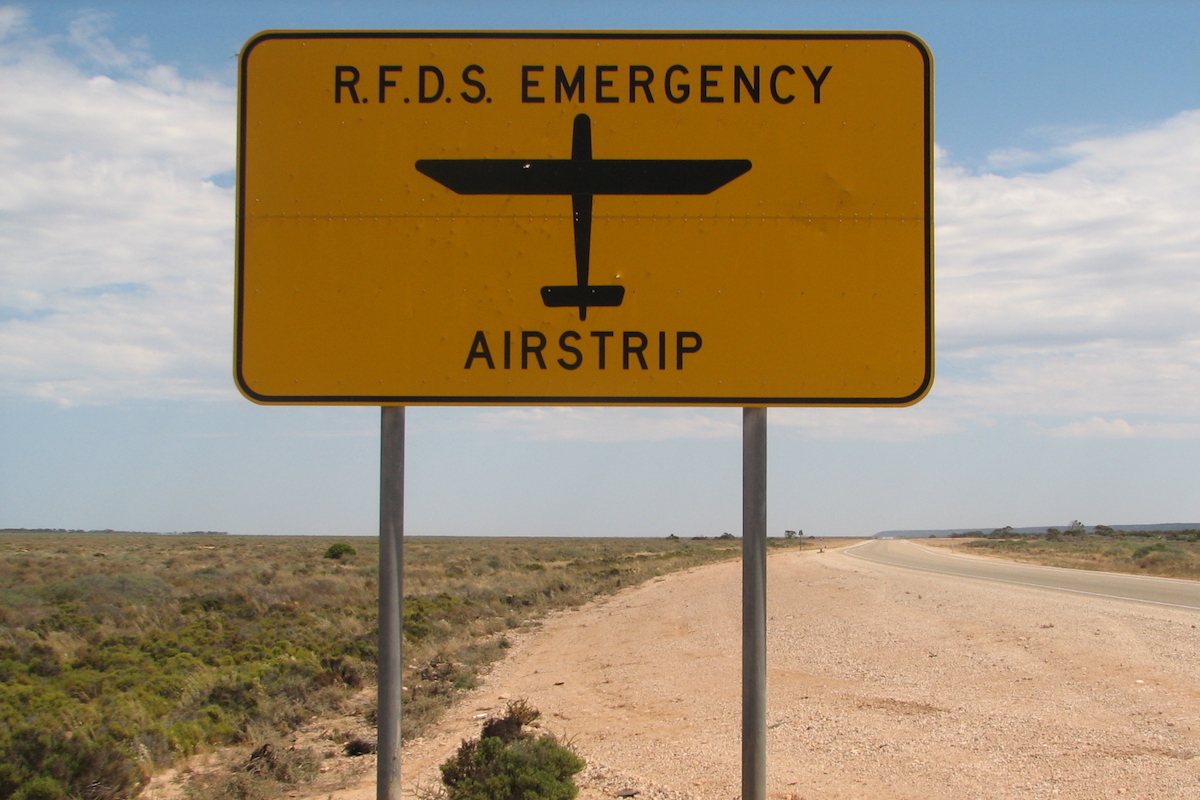
The report found that people living in remote and very remote areas:
- tend to experience greater social disadvantage and poorer health outcomes
- have higher death rates from coronary heart disease with the rate 1.3 times as high for men and 1.2 times as high for women compared to their metropolitan living counterparts
- have higher rates of diabetes, with Aboriginal Australians 3.3 times more likely to have diabetes
- have lower five-year survival rates from all cancers compared to people living in metropolitan areas.
In 2013–14, the RFDS assisted more than 280,000 people across Australia—that’s one every two minutes—delivering a range of services from emergency evacuation, inter-hospital transfers, essential primary health services, and oral health, mental health, and womens health services.
Through the work of the RFDS, people living in remote Australia have constant direct access to primary healthcare services. In 2013–14 alone, the RFDS provided:
- approximately 65,000 people with access to regular rural health clinics, including GP clinics for 29,460 patients and community health nurse clinics for 9,073 patients
- over-the-phone or radio, 82,000 remote telehealth consultations by GPs
- people living in very remote areas with access to 1,794 medical chests containing essential pharmaceuticals for emergency care
- oral health and mental health services, including dental clinics and consultations with mental health nurses.
The Royal Flying Doctor Service needs our support
Many of these RFDS fly-in clinics are conducted by GPs, community health nurses, mental health nurses, and allied health professionals at locations typically more than 1,000 kilometres from the nearest RFDS base. They provide face-to-face care that would otherwise be unavailable to people living in remote areas.
To provide these essential services, the RFDS relies on contracts with all levels of government, some government funding, corporate donations, the generosity of the public, thousands of volunteers, and the grassroots auxiliaries and support groups in rural and regional locations all over Australia.
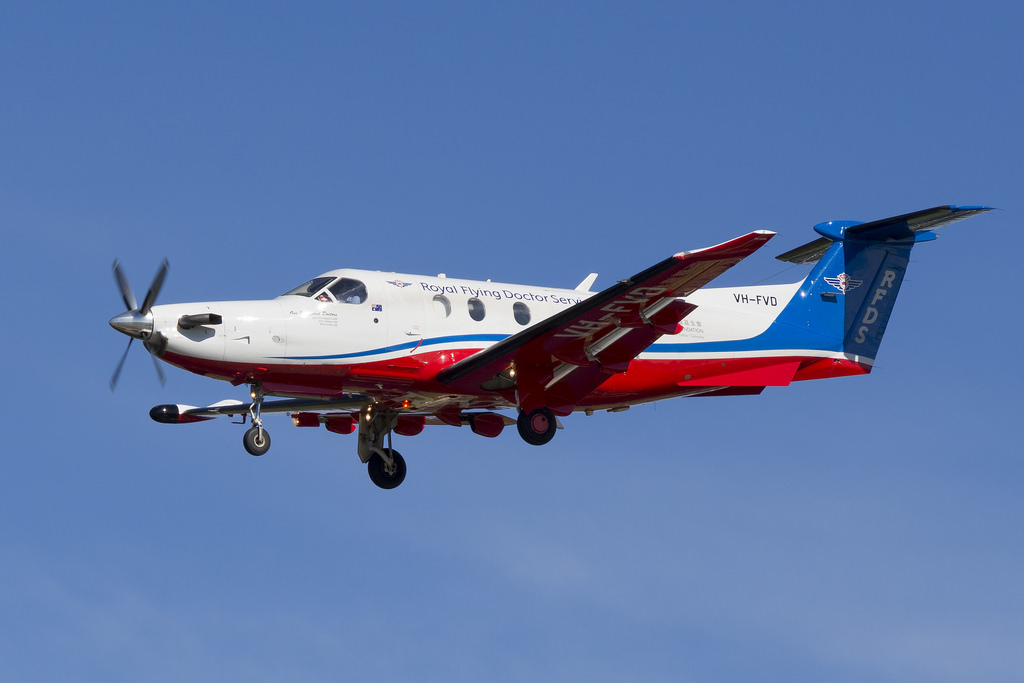
The service also has signature fundraising events like Wings for Life Gala Ball, Wilpena Under the Stars, and the Altitude Ball, with thousands of third-party fundraisers working to support the RFDS in a myriad of ways from head shaves, to car rallies, fun runs, and desert bike rides to school kids washing cars or selling popcorn.
Thousands of RFDS flights to isolated regions every year
Nationally, the RFDS operates 64 fixed-wing aircraft from 21 aeromedical bases and a further five remote primary care facilities from where it delivers 24-hour emergency services and essential primary health services.
The RFDS delivers services covering all of Australia through five operating sections: Central Operations (covering South Australia and the Northern Territory), Western Operations (covering Western Australia), Queensland Section, South-Eastern Section (NSW and Tasmania), and Victoria Section.
Through the work of the RFDS, people living in remote Australia have constant direct access to primary healthcare services.
In 2013–14, the RFDS logged 75,314 aircraft landings as emergency aeromedical evacuations, inter-hospital transfers, fly-in GP and community health nurse clinics, oral health clinics, eye health, and allied health clinics throughout rural and remote Australia.
These flights covered 26.4 million kilometres, with a daily average of 72,358 kilometres flown.
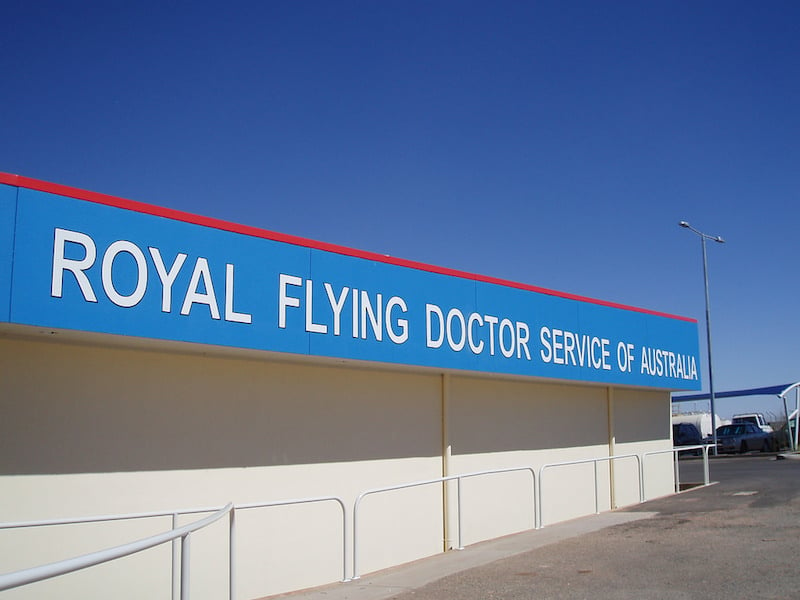
The services are vital to patients in remote communities or families and workers living on isolated homesteads.
The CIE report found that the RFDS provides a unique model of healthcare which:
- includes a capacity to resolve treatment issues rather than referring a patient on for further healthcare
- provides continuity of care for patients over time and often over generations
- has the ability to meet a wide range of healthcare needs, including critical intervention, prevention, continuing management, and emergency evacuation
- embodies a practical approach to what needs to be done.
The RFDS Healthy Living Program
RFDS Central Operations, which covers South Australia and the lower half of the Northern Territory, in addition to that described above, delivers a Healthy Living Program (supported by the Li Ka Shing Foundation since 2007) and a Remote Oral Health Care Program (supported by Adelaide Airport Limited).
Aimed at preventing the onset of chronic illness related to diabetes and cardiovascular disease, the Healthy Living Program provides classes and instruction in diet, fitness, and general health and wellbeing designed to instil healthy habits and future lifestyle changes.
The Remote Oral Health Care Program delivers a two-day dental clinic and oral health education twice a year in remote outback communities in collaboration with the University of Adelaide’s School of Dentistry.
Often patients living and working in remote locations face up to a day’s drive to see a dentist, but can more than halve the travelling time by attending a remote oral health clinic in SA outback locations like Marla, Marree, and Oodnadatta in the Gawler Ranges, or the Birdsville Track. We also employ an Aboriginal Health Coordinator, sponsored by BHP Billiton, assisting Aboriginal patients on admission to and discharge from hospital.
For further information or to donate, please call 1300 669 569 or visit flyingdoctor.org.au

